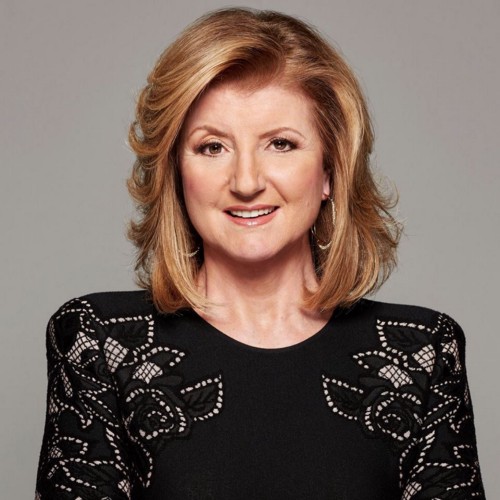
As we’re opening our Thrive Global office in Dublin today I’ve been reading more about Ireland’s new code of conduct for businesses with the very-of-the-moment title, “Right to Disconnect.” While it’s not a law, it’s a set of guidelines and best practices issued by the country’s Workplace Relations Commission to “assist employers and employees in navigating an increasingly digital and changed working landscape which often involves remote and flexible working.” The new code has three essential provisions: the right of employees not to routinely work outside normal business hours, the right to not be penalized for not working outside those hours, and the duty of employees to respect their coworkers’ right to disconnect.
All three provisions are important, but it’s the third I find most exciting. It reflects a shift toward a more human workplace, where we as individuals are looking out for each other and respecting our collective need to disconnect and recharge. In fact, the code makes that point very explicit, declaring that “while placing the onus of management of working time on the employer is appropriate, individual responsibility on the part of employees is also required.”
This is such an important step forward because workplace policies alone aren’t enough. Top-down decrees can create guard rails and expectations, but when we take ownership of our own time and are mindful of others’ — including their mental health and risk of burnout — that’s a culture shift.
Sure, we can disconnect from work, but that doesn’t necessarily mean we’ll be connecting with what matters. Work isn’t the only thing we need to disconnect from. We can seamlessly log off Slack and Zoom, and log right back on to social media, video games, or start doomscrolling or binge watching. These can be just as exhausting and depleting, along with all the other forms of technology and distraction that keep us from connecting with ourselves and those who matter in our lives.
Companies can have perfect policies encouraging people not to be working or sending emails after hours. But that doesn’t mean that employees will be using that time to recharge, reconnect with what matters and thrive.
“The pandemic has transformed working practices, and many of those changes will be long-lasting,” Irish Deputy Prime Minister Leo Varadkar said when announcing the Right to Disconnect. “Although much of the impact of the pandemic has been negative… it also offers an opportunity to make permanent changes for the better.”
I couldn’t agree more. That’s why we’re expanding and adding Dublin to our global family of offices in New York, San Francisco, Athens, Bucharest and Melbourne.
The flipside of the right to disconnect is our hardwired need to connect with ourselves, with each other and with the things that bring us joy. We’re not going to be able to legislate ourselves out of this problem — it’s going to require all of us to create a culture shift that helps us thrive in all aspects of our lives.
And to accelerate that shift, we’ll be tapping into Dublin’s growing pool of tech talent. We’ll be hiring not just for our engineering team — including mobile, backend, infrastructure, web and data science — but also for our product, design, business development and sales teams. So if you or someone you know is interested in a new and very mission-driven opportunity to help people connect with what makes them thrive, check out our Careers page for more information.
Subscribe here for Arianna’s On My Mind Newsletter, where you’ll find inspiration and actionable advice on how to build healthy habits, resilience and connections in our unprecedented times.

Arianna Huffington, Founder & CEO at Thrive Global
Arianna Huffington is the founder and CEO of Thrive Global, the founder of The Huffington Post, and the author of 15 books, including Thrive and The Sleep Revolution. In 2016, she launched Thrive Global, a leading behavior change tech company with the mission of changing the way we work and live by ending the collective delusion that burnout is the price we must pay for success.She has been named to Time Magazine’s list of the world’s 100 most influential people and the Forbes Most Powerful Women list. Originally from Greece, she moved to England when she was 16 and graduated from Cambridge University with an M.A. in economics. At 21, she became president of the famed debating society, the Cambridge Union.She serves on numerous boards, including Onex and The B Team.Her last two books, Thrive: The Third Metric to Redefining Success and Creating a Life of Well-Being, Wisdom, and Wonder and The Sleep Revolution: Transforming Your Life, One Night At A Time, both became instant international bestsellers. Most recently, she wrote the foreword to Thrive Global’s first book Your Time to Thrive: End Burnout, Increase Well-being, and Unlock Your Full Potential with the New Science of Microsteps.
Share your comments below. Please read our commenting guidelines before posting. If you have a concern about a comment, report it here.







